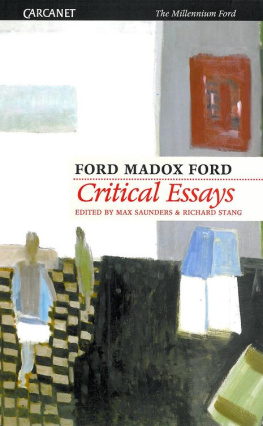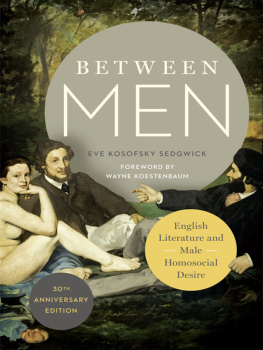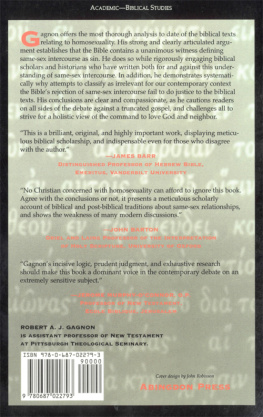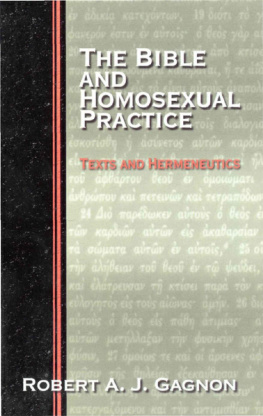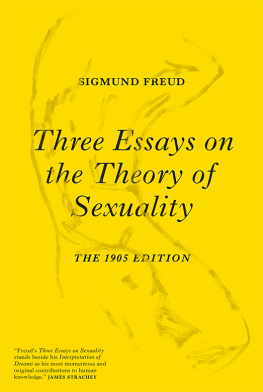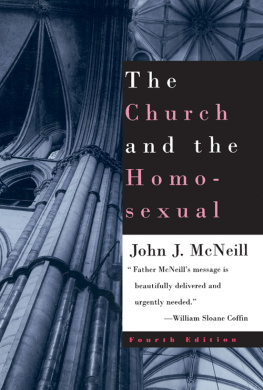ROUTLEDGE LIBRARY EDITIONS: LITERATURE AND SEXUALITY
Volume 1
DOUBLE TALK
DOUBLE TALK
The Erotics of Male Literary Collaboration
WAYNE KOESTENBAUM
First published in 1989 by Routledge
This edition first published in 2017
by Routledge
2 Park Square, Milton Park, Abingdon, Oxon OX14 4RN
and by Routledge
711 Third Avenue, New York, NY 10017
Routledge is an imprint of the Taylor & Francis Group, an informa business
1989 Routledge, Chapman and Hall, Inc.
All rights reserved. No part of this book may be reprinted or reproduced or utilised in any form or by any electronic, mechanical, or other means, now known or hereafter invented, including photocopying and recording, or in any information storage or retrieval system, without permission in writing from the publishers.
Trademark notice: Product or corporate names may be trademarks or registered trademarks, and are used only for identification and explanation without intent to infringe.
British Library Cataloguing in Publication Data
A catalogue record for this book is available from the British Library
ISBN: 978-0-415-78487-0 (Set)
ISBN: 978-1-315-21275-3 (Set) (ebk)
ISBN: 978-0-415-79007-9 (Volume 1) (hbk)
ISBN: 978-0-415-79025-3 (Volume 1) (pbk)
ISBN: 978-1-315-21346-0 (Volume 1) (ebk)
Publishers Note
The publisher has gone to great lengths to ensure the quality of this reprint but points out that some imperfections in the original copies may be apparent.
Disclaimer
The publisher has made every effort to trace copyright holders and would welcome correspondence from those they have been unable to trace.
Double Talk
The erotics of
male literary
collaboration
Wayne Loestenbaum
First published in 1989 by
Routledge
An imprint of Routledge, Chapman and Hall, Inc.
29 West 35 Street
New York, NY 10001
Published in Great Britain by
Routledge
11 New Fetter Lane
London EC4P 4EE
1989 by Routledge, Chapman and Hall, Inc.
Printed in the United States of America
All rights reserved. No part of this book may be reprinted or reproduced or utilized in any form or by any electronic, mechanical or other means, now known or hereafter invented, including photocopying and recording, or in any information storage or retrieval system, without permission in writing from the publishers.
Library of Congress Cataloging in Publication Data
Koestenbaum, Wayne.
Double talk: the erotics of male literary collaboration / Wayne Koestenbaum.
p. cm.
Bibliography: p.
Includes index.
ISBN 0-415-90109-X; ISBN 0-415-90110-3 (pbk.)
1. English literatureMen authorsHistory and criticismTheory, etc. 2. English literatureMen authorsHistory and criticism. 3. AuthorshipCollaborationPsychological aspects. 4. Men authors, EnglishSexual behavior. 5. Men authors, English Psychology. 6. Psychoanalysis and literature. 7. Homosexuality and literature. I. Title.
PR120.M45K64 1989
British Library Cataloguing in Publication Data
Kostenbaum, Wayne.
Double talk: the erotics of male literary collaboration.
1. English literatureCritical studies
I. Title
820.9
ISBN 0-415-90109-X
ISBN 0-415-90110-3 (pbk.)
For Steve Marchetti
Contents
For three years I have been considering how authors affectionately combine identities. I have been lucky in my teachers, colleagues, and friends, whom I am happy to acknowledge as my more than implied collaborators, if they will accept the designation.
I owe particular thanks to Elaine Showalter, who has guided my work at all stages; without her friendship and example, I could not have written this book. I am equally grateful to U. C. Knoepflmacher, who supervised this project in its earlier incarnation as a dissertation, and who has been remarkably generous with his time and erudition.
Others have helped to lighten the burden of solitary scholarship. I am especially grateful to Celeste Schenck, who read the entire book in an earlier draft and offered lucid advice. Sandra M. Gilbert and A. Walton Litz each helped the project along, giving astute comments and cheerful guidance. Jane Gallop gave me the benefit of her careful editing, and kindly sponsored the as an MLA paper. Eve Kosofsky Sedgwick, whose work has influenced my own, was a searching critic of portions of this book; I am grateful for her elucidations. I thank Carol Barash, David Bromwich, Ronald Bush, Andrew Kappel, and Ann Kibbey for commenting on chapters in earlier versions. Frequent and fond conversations with Richard Howard, J. D. McClatchy, and James Richardson helped me understand prose and poetry; letters from Jeanne Schinto were inestimable. David McDermott and Peter McGough generously granted me an interview, and allowed me to use their painting, No Arguments1903, as an illustration. Steven Marchetti advised me on questions of style. Fred Kameny prepared the index. William P. Germano has been a peerless editor.
I am grateful to the Mrs. Giles Whiting Foundation for a fellowship which gave me time to write.
Chapter one was published, in slightly different form, in Genders (University of Texas Press); appeared in Critical Matrix: Princeton Working Papers in Womens Studies. For access to unpublished material on Pound and Eliot, I owe thanks to the Collection of American Literature, Beinecke Rare Book and Manuscript Library, Yale University. Excerpts from letters by Ezra Pound, Copyright 1988 by the Trustees of the Ezra Pound Literary Property Trust; used by permission of New Directions Publishing Corporation, agents, and Faber and Faber Ltd. Excerpts from Pounds Postscript to Remy de Gourmonts The Natural Philosophy of Love from Pavannes & Divagations, Copyright 1958 by Ezra Pound; used by permission of New Directions Publishing Corporation, agents, and Faber and Faber Ltd. I reproduce the cover photograph, Birth of Dionysus, courtesy of the Estate of George Platt Lynes.
Andr Gide implied a disdain for literary collaboration when he had a character in The Counterfeiters proclaim that no chef-doeuvre was ever produced by several people together.
My project began with a similarly romantic intuition of collaborations power to join two male selves. Reading H. Rider Haggards sensational novel, She (1887), dedicated to his friend Andrew Lang, I interpreted its emphasis on male bonds as a reflection of the authors collegial affection for the dedicatee. One scene in particular seemed to embody their friendship. Leo and Horace, two men exploring a matriarchal Africa, must help each other leap across an abyss from one projecting rock to another. Guiding Horace across a threatening feminine gap, Leo confirms their mutual affection:
I heard his sinews cracking above me, and I felt myself lifted up as though I were a little child, till I got my left arm around the rock, and my chest was resting on it. The rest was easy; in two or three more seconds I was up, and we were lying panting side by side, trembling like leaves, and with the cold perspiration of terror pouring from our skins!


